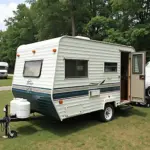Have you ever dreamt of wandering through the bustling streets of Tokyo, haggling for souvenirs in Marrakech’s vibrant souks, or feeling the spray of Niagara Falls on your face? The world is brimming with captivating destinations, but before you embark on your adventure, there’s a crucial element to consider: travel documents.
Just like a magic key that unlocks new experiences, a travel document is your ticket to exploring the globe. But what exactly is a travel document, and what do you need to know to navigate the world with ease? Let’s dive in!
Understanding Travel Documents: Passports, Visas, and More
In essence, a travel document confirms your identity and nationality, granting you permission to enter, transit through, or exit a foreign country. It’s the official stamp of approval that says, “Hey world, this person is good to go!” Think of it as your passport to adventure (pun intended!).
Types of Travel Documents
Here’s a breakdown of the most common types of travel documents:
- Passport: Your most important travel companion, a passport is an internationally recognized document issued by your home country, verifying your citizenship and identity. Picture it as your global ID card!
- Visa: This official document, issued by the country you wish to visit, grants you permission to enter and stay for a specific purpose and duration. Think of it as an exclusive invitation to experience their culture.
- Visa Waiver Program: Some countries offer visa-free travel to citizens of specific nations for a limited time. It’s like getting a VIP pass to bypass the visa application process.
- Other Documents: Depending on your destination and purpose of travel, you might need additional documents, such as:
- Vaccination certificates: Some countries require proof of vaccination against specific diseases.
- Return tickets: This shows that you have plans to leave the country after your intended stay.
- Proof of accommodation: Hotel reservations or invitations from hosts can demonstrate where you’ll be staying.
- Financial statements: Some countries may ask for evidence of sufficient funds to cover your expenses.
